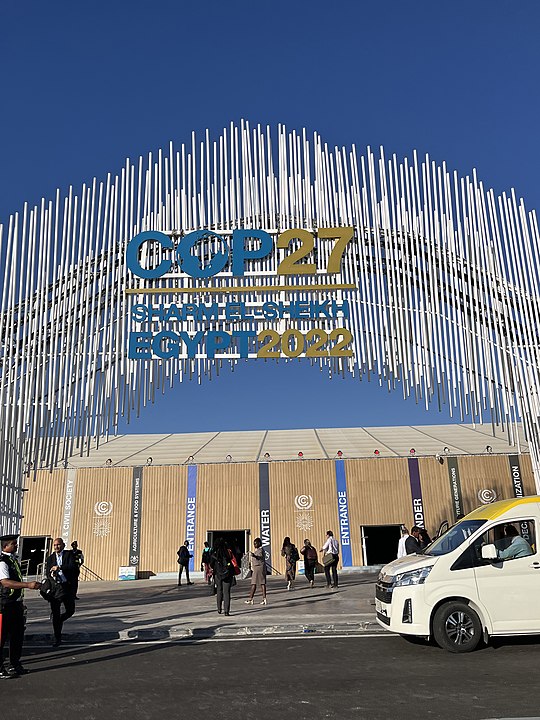COP27 has already started and entered its second week. Nevertheless, it has been met with various controversies which led some activists to boycott it, with Greta Thunberg being the most important person to do so.
Greta Thunberg, the young Swedish climate activist, has recently stated that she is not going to attend this year’s COP accusing it of “greenwashing, lying and cheating and so on” as reported by the Guardian.
The young climate activist addressed her concern about COP when promoting her book “The Climate Book”, at London’s Sounthbank Centre, as reported by the Guardian. During the event, Thunberg stated that “The COPs are mainly used as an opportunity for leaders and people in power to get attention, using many different kinds of greenwashing”.
Greenwashing, as explained by Lydia Noyes of EcoWatch refers to the companies’ attempt to convince customers that they are making “positive environmental choices, often through eco-conscious verbiage”. If we apply this definition to COP27 or to any COP throughout the years, it would refer to all the empty promises and agreements that the different leaders who attended the Conference have stated.
A few days after her statement, Thunberg expressed her support for the Civic Space movement through a tweet that called for social justice, demanded the release of the prisoners of conscience in Egypt and added that “there is no climate justice without social justice and human rights”.
During COP27, we urge the Egyptian authorities to immediately and unconditionally release all those held simply for peacefully exercising their human rights, implementing criteria set by local NGOs for these releases: fairness, transparency, inclusiveness, and urgency. 1/4
— Greta Thunberg (@GretaThunberg) November 8, 2022
The other concerning thing about this year’s COP is the fact that Coca-Cola is a sponsor of the event. This was controversial because of Coca-Cola’s plastic waste that has increased between 2019 and 2021 to reach 3.2 million tons as reported by The New York Times.
Even though Thunberg as well as other activists chose to boycott COP27, others stated how important it is that this conference is going to be held in an African country and how effective previous conferences have been.
Felix Dodds and Chris Spence from Inter Press Agency shared their opinion in response to Thunberg’s decision that was shared later on by Allafrica, an independent African news agency. Dodds and Spence called Thunberg to reconsider her choice since the recent COPs have proven efficient especially in reducing at least 1 degree of the expected heat of the planet. They pointed out how important it is that all parties attend the conference. Other politicians such as Rishi Sunak took back their words of boycotting this year’s COP and attended the Conference.
In an article by BBC, they addressed how essential the role of young people is in addressing the climate crisis. Young people from across the world expressed how they agree with Thunberg’s statement concerning the Conference and how it might not lead to actual results, but they still wanted to make a difference and speak to world leaders about the urgency of the matter. Youth from the most affected areas of the climate crisis stated that “their work has an impact here”, “this is for the youth, organized by us”, “I can’t just give up hope for change” as reported by BBC. In spite of the struggles these people went through, they still wanted to make a difference and make their voices heard.
The climate question should be addressed each year and new plans need to be made so that we can establish new measures to address them. Boycotting COP 27 in an environment that was expected to bring together young people from around the world could not be the ultimate solution to the problems in Egypt. Greta Thunberg has been very influential in addressing the climate dialogue. Her attendance would have made a difference even if it were little.










